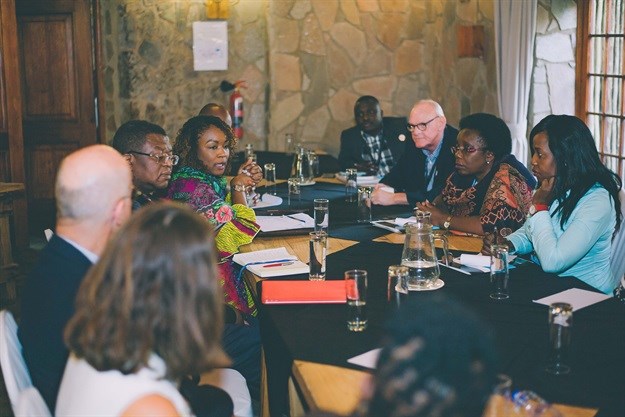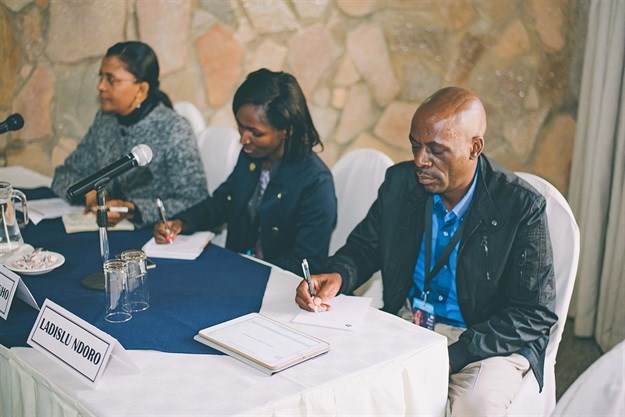Habitat for Humanity's Solid Ground Campaign in association with the Urban CSO Cluster of the Global Land Tool Network (GLTN) of UN-Habitat hosted a conference focusing on land governance and management in Africa in Pretoria earlier this week. Influential women from across Africa shared their findings on (among other things) land policy initiatives, including women's rights to own land.
“The Partnership for Action Conference saw an opportunity for policymakers, academics and members from many organisations to share valuable information to help the transformation of policy development in Africa,” said Tamzin Hudson, advocacy specialist for Habitat for Humanity International. A common thread was the issue of gender inequality and the high priority it should take when working on land governance-related policymaking.
“We need to address equal rights to ownership to land, and ensure that the land policy framework that we develop guarantees equal rights to all people, including women, who have been excluded historically from inheriting land in Liberia,” said conference attendee Ellen Pratt, the commissioner of land use and management with the Liberian Land Authority.
Knowledge access
Education and information are also paramount to ensure women are aware of their rights to land and the right to have their names on documentation. “Women need to have the right to bequeath land, trade land and cultivate land with the knowledge that the land belongs to them,” said Jacqueline Amongin, Uganda’s representative of the Pan African Parliament.
Marc Wegerif has worked on development and human rights issues in a range of organisations for over 25 years, and is currently the Land Rights Policy Lead with Oxfam. Speaking on gender and women’s rights, at the conference, he pointed out that in communities where women have stronger land rights, there are lower levels of both of hunger and of violence against women. “With control over the land they depend on for their livelihoods, women are able to take more control of their lives. Women also play a vital role in the betterment of their families and communities, giving them secure land rights should be imperative,” said Wegerif.
Equipping women with the necessary tools
Land is essential to securing shelter, for agriculture for food security, for mobilising investments and for sustainable management of resources. “Including women in decision-making in land policy, and creating programmes that give women the necessary tools to secure land ownership, will address the challenges facing most African countries,” Hudson said.
The conference took place in partnership with the Namibia University of Science and Technology (NUST), Habitat International Coalition (HIC), Pamoja Trust, the Huairou Commission, and Slum/Shack Dwellers International (SDI). Stakeholders from multiple sectors came together to explore approaches to land governance for inclusive and sustainable development in Africa.



























